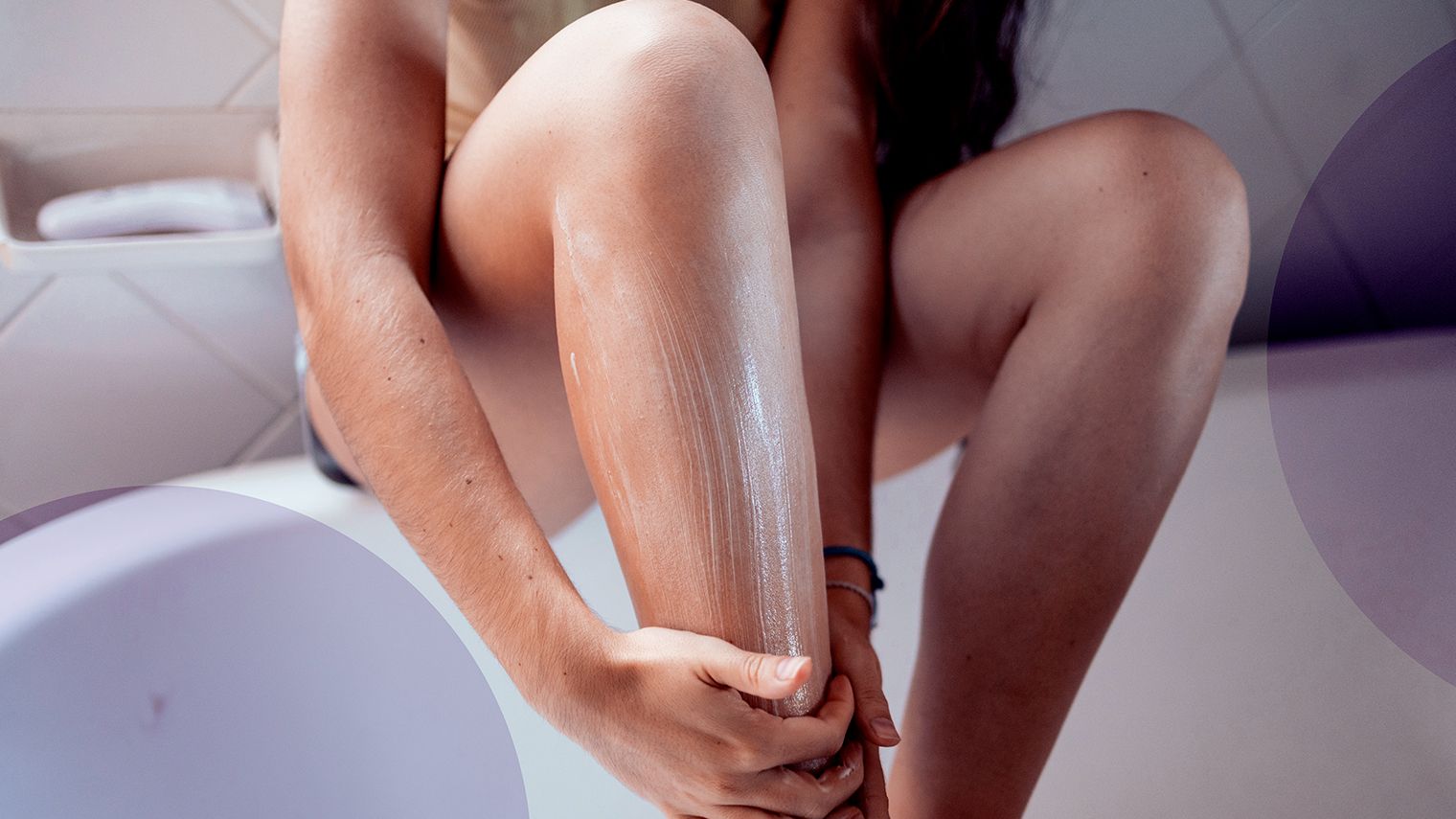7 Ways to Cope with Psoriasis Itch
June 26, 2024

Photography by Pedro Merino/Stocksy United
Dealing with psoriasis itch can be difficult, but you’re not alone. Check out these seven practical tips that can help relieve the irritation and make your life a little more comfortable.
Itch is an irritating, persistent issue that people living with psoriasis often deal with.
Psoriasis is an autoimmune disorder in which the skin replaces itself too rapidly, leading to potentially itchy patches or lesions.
Treatments for psoriasis help reduce the severity of symptoms and help reduce the occurrence of flares. But other home therapies, ointments, and medications can help with reducing the itch associated with psoriasis.


1. Moisturize the skin
Applying moisturizer to the skin can help prevent dry, cracking skin. You may find that the act of gently rubbing moisturizer into the itchy patch may help alleviate the itch.
It’s important to try to keep your skin as moist as possible. To do this, try using lukewarm water when bathing or showering and apply a copious amount of moisturizer following bathing.
You may also find that applying moisturizer to your skin in the morning and night is helpful.
2. Stay current on your medications
Taking your medications as prescribed plays an important part in controlling itch — and other symptoms. A dermatologist should provide you with detailed instructions on how and when to use your medications.
You should let a dermatologist know if you notice:
- worsening symptoms, such as increased itch
- new symptoms
- adverse events, also known as side effects
If you notice these things, it may be time for you to try a different medication or different therapies.
3. Limit exposure to water when showering
If you find your skin getting itchy, check your shower routine.
Limiting your showers to about 5 to 10 minutes may help with reducing itch. The longer your skin gets exposed to water, the more dehydrated it gets.
Dehydrated skin can cause itchiness to increase or worsen.
When showering, also try to use lukewarm water. Overly hot water can dry out and irritate the skin.
4. Consider itch-relieving topicals
Many over-the-counter topical (applied to skin) medications can help with itch and are safe to use with psoriasis.
Look for products that contain the active ingredients menthol or camphor.
You should also look for products that can also help moisturize the skin.
You may find a dermatologist is a good resource for finding products that won’t irritate your skin. If you do use a product that irritates the skin, discontinue use.
5. Apply a cool, damp cloth
If you have an area of itchy skin, applying a cool, damp cloth to the area helps to provide temporary relief to the itch.
Take a small hand towel or washcloth and wet it in the sink using cold water. Wring out as much water as possible and then lay it gently across the area of itchy skin.
The cold helps to quiet the nerves in the skin, making it less itchy for a bit.
6. Consider topical steroids
Topical steroids are one of the most common treatments for psoriasis. They’re available in several different strengths, which gives you and your doctor several options when selecting the right one for you.
Topical steroids, such as corticosteroids, help reduce inflammation in the area you apply them. Unlike systemic steroids that provide general inflammation relief throughout the body, topical steroids only affect the area of skin that you apply them to, providing some targeted relief.
In most cases, doctors don’t recommend the use of topical steroids for longer than 3 weeks at a time.
More powerful steroids have a greater ability to clear patches, but they also increase your risk of side effects. Less potent steroids may be more appropriate for long-term use or in sensitive areas, such as around your groin, eyes, under arms, or face.
7. Identify and avoid triggers
Different environmental and internal issues can trigger itch and other psoriasis symptoms.
Some common triggers include:
- stress
- extreme heat or cold
- sweating
- dry skin
- infection
- medications
You may also find it helpful to keep a journal about itchiness. The goal of journaling is to record when you experience itchy skin, what you were doing before, and what helps the itchiness.
Keeping a journal may help you identify some of your triggers for itchy skin. Once you identify your specific triggers, you can take steps to avoid or mitigate them.
You may also discover times of day when you tend to get itchier. This may help you discuss with your doctor changes in medication routines to help manage or prevent itchiness at common times that affects you.
If stress is a cause, you may find that taking steps to manage your stress can help. Stress relief strategies can include:
- regular exercise
- regular sleep
- deep breathing exercises
- yoga and other types of meditative exercises
- counseling
Takeaway
Itch associated with psoriasis is a common complaint. One of the best ways to help keep itch down is to keep up to date with your treatment and let a doctor know if your symptoms worsen or new symptoms appear.
Other ways to deal with itch include keeping the skin moisturized, limiting shower times, using lukewarm water, cool, wet cloths, and use of topical medications.
Finding out more about your triggers and taking steps to avoid them may also help manage and prevent itchiness.
Hi Bezzy! Would you like to receive a special series of mini-lessons on reducing inflammation in psoriatic arthritis? There's no cost, and it’s easy to sign up here.
Medically reviewed on June 26, 2024
1 Source


Like the story? React, bookmark, or share below:
Have thoughts or suggestions about this article? Email us at article-feedback@bezzy.com.
About the author